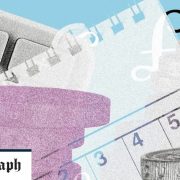A general election is now confirmed for December, as Labour leader Jeremy Corbyn has withdrawn opposition to the vote.
Labour had been blocking an early election until a no-deal Brexit was ruled out. Following news of a Brexit extension until January, the party today said it was happy to go to the polls.
But what would a Corbyn administration mean for the pound in your pocket? In this article, Telegraph Money looks at how savings and mortgage rates could be affected by a shift in power.
New Labour was kind to savers, and the much-loved Isa was brought in on its watch in 1999, letting consumers build up a nest egg without being taxed. Around £68bn is now held in these deals.
But a Labour government under Jeremy Corbyn could be harder on savers than its previous, more moderate incarnation.
The party has no policies on savings, and is perhaps so far removed from the subject because its leader might have no savings at all. However, the party could water down existing perks if it gains power, as it has been clear that tax relief is in its gunsights.
While this has been confined to areas such as the tax-free personal allowance on capital gains, the principle could easily be applied to savings tax relief too, such as that applied to Isas.
Sarah Coles, of Hargreaves Lansdown, the fund shop, said: “There’s a chance that a future Labour government would want to revisit tax on savings. It has shown enthusiasm for reviewing tax relief in general, so the savings allowance and Isa allowance could be under pressure.”
This could take the form of savers being taxed on more, or all, of their cash returns.
Ray Boulger of John Charcol, a mortgage broker, said that regardless of who wins any election, he expects the Bank of England to cut the Bank Rate by as much as 0.25pc.
This is because of the struggling global economy and ongoing trade war between America and China. While Brexit and political uncertainty is also a factor, much of this impact has already been factored in by the market, he said.
This would result in lower savings rates, but homeowners and others trying to get onto the ladder would also potentially benefit from falling mortgage rates. However, Mr Boulger warned there were many other factors to consider.
“Given the huge cost of nationalising vast swathes of British industry, as Labour has promised, government borrowing would increase very substantially, which would push up interest rates and hence mortgage costs,” he warned.
Concerned homeowners could choose to lock in their mortgage rate now, a move which has been dubbed the Corbyn mortgage hedge.
Landlords have been repeatedly squeezed since the Conservatives came to power in 2010, with various tax breaks being removed. A Corbyn administration is unlikely to reverse any of these changes.
Instead, future rules could force landlords to sell to their tenants at market price, much like how social housing can be purchased by renters.
“Many landlords would see such a law as the last straw after various new regulations and tax changes imposed by the current and previous governments and would decide to sell,” he warned.
Mr Boulger said this would have the impact of lowering property prices in the short term, especially in areas with a high proportion of rented homes, such as London. But this would also mean higher monthly rents, as fewer properties would be available to tenants, unless Labour ploughed ahead with its plans to cap such rises.
























Comments